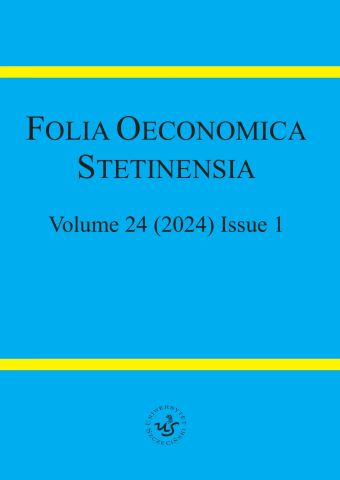What Factors Affect Bicycle Commuting? An Empirical Analysis in Tbilisi and Warsaw
What Factors Affect Bicycle Commuting? An Empirical Analysis in Tbilisi and Warsaw
Author(s): Giga Kikoria, Zezva Sanikidze, Marek Sikora, Simon GelashviliSubject(s): Economy, Micro-Economics, Energy and Environmental Studies, Socio-Economic Research, Transport / Logistics
Published by: Wydawnictwo Naukowe Uniwersytetu Szczecińskiego
Keywords: Hypothesis testing; Model Construction and Estimation; Social Choice; Air Pollution; Transportation; Safety
Summary/Abstract: Purpose: The purpose of the article is to identify the factors that influence commuting by bicycle with a specific focus on Tbilisi and Warsaw. Based on the testing of hypotheses, the authors intended to determine how different factors affect commuting by cycling in these two cities. Design/methodology/approach: The study uses a structured and self-administered online questionnaire of bicycle users in both cities. The survey collected data on cycling behaviour, motivations, and perceptions of cycling infrastructure. The population of the cycling community was 12,000 in Tbilisi and 14,000 in Warsaw. The Binary logit regression model was used to determine the influence of variables. The questionnaire is in line with The National Institute for Transportation and Communities of USA. Findings: The study’s findings suggest that while commuting by cycling has significant environmental benefits, there are significant barriers to its adoption, including a lack of infrastructure, safety concerns, and cultural attitudes towards bicycle commuting in Tbilisi and Warsaw. The study also reveals different attitudes among bicycle users. Research limitations: The study’s limitations include the relatively small sample size of the survey and the limited scope of the quantitative survey. Nevertheless, the study provides valuable insights into the opportunities and challenges of promoting cycling as a sustainable mode of transport in these two cities. Practical implications: The practical implications of the study are twofold. First, it highlights the need for a coordinated effort by local authorities, civil society, and private actors to promote cycling as a sustainable mode of transport. Second, it provides specific recommendations for policymakers on how to overcome the barriers to cycling and promote this sustainable means of transport. Originality/value: The study’s originality lies in its focus on two cities with different cultural and political contexts, providing a comparison of how cycling promotion strategies may vary across contexts.
Journal: Folia Oeconomica Stetinensia
- Issue Year: 24/2024
- Issue No: 1
- Page Range: 87-104
- Page Count: 18
- Language: English

